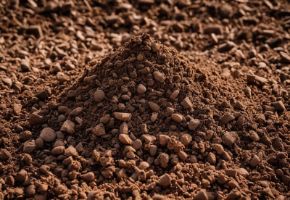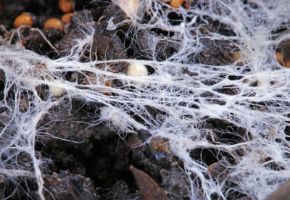Welcome to an extraordinary journey into the world of mycology applied to wellness: we will thoroughly and detailedly explore the properties of an extraordinary mushroom, Ganoderma lucidum, also known as Reishi, and its potential role in managing abdominal fat. Through scientific data, clinical studies, and detailed tables, we will dissect every aspect of this fascinating topic, offering a comprehensive resource for mycologists, botanists, mushroom growers, and all those passionate about fungi and their impact on human health. The fight against fat, particularly abdominal fat, is one of the most common challenges in the wellness field, and discovering that a powerful ally might be growing in our woods is an exciting prospect.
Abdominal fat: what is it?
Before delving into the specifics of the mushroom in question, it is essential to understand what abdominal fat is and why it represents such a significant health problem. Abdominal fat, or visceral adipose tissue, is not simply a cosmetic issue, but a metabolically active organ that secretes hormones and inflammatory cytokines, negatively affecting the entire body. Mycotherapy, i.e., the use of mushrooms for medicinal purposes, boasts a millennia-old tradition in various cultures, particularly in the East, and is gaining increasing scientific interest in the West for its holistic approach and low side effect profiles.
What is abdominal fat and why is it dangerous
The fat that accumulates in the abdominal area is fundamentally different from subcutaneous fat. It is metabolically active and releases free fatty acids directly into the liver, promoting insulin resistance, systemic inflammation, and increasing the risk of cardiovascular disease, type 2 diabetes, and some forms of cancer. Understanding the dangerous nature of this type of fat is the first step to appreciating the importance of effective and natural reduction strategies. It's not just about aesthetics, but a matter of profound health and longevity.
Epidemiological data on abdominal fat
The World Health Organization (WHO) estimates that over 1.9 billion adults are overweight, and of these, over 650 million are obese. A significant percentage of these people have excess abdominal fat. The following table illustrates the correlation between waist circumference and risk of comorbidities according to international guidelines.
| Waist circumference | Health risk (men) | Health risk (women) |
|---|---|---|
| Less than 94 cm (M) / 80 cm (W) | Normal | Normal |
| 94-102 cm (M) / 80-88 cm (W) | Elevated | Elevated |
| Greater than 102 cm (M) / 88 cm (W) | Very High | Very High |
Source: Adapted from IDF (International Diabetes Federation) guidelines.
Ganoderma lucidum: the mushroom king
Ganoderma lucidum, known in Japan as Reishi and in China as Lingzhi, is a basidiomycete fungus of the Ganodermataceae family. It has been revered for millennia in Asia as the "mushroom of immortality" for its purported properties of promoting longevity and health. Its appearance is unmistakable: a kidney-shaped or fan-like cap, shiny and woody in texture, with colors ranging from red to black. Its cultivation is complex, which has historically limited its availability, making it a mushroom reserved for nobility.
History and traditional use of Reishi
The earliest documented uses of Ganoderma lucidum date back over 2000 years, during the Han Dynasty in China. It was considered a superior tonic, an adaptogen capable of balancing the body's energies and strengthening the "vital spirit" or Qi. Traditional doctors prescribed it for a wide range of ailments, from insomnia to asthma, from liver diseases to the pursuit of a longer, healthier life. This long history of safe use provides an important context for modern scientific research.
Bioactive components of Ganoderma lucidum
The efficacy of Reishi is attributed to its rich and complex phytochemical profile. The most studied components are polysaccharides (especially beta-glucans) and triterpenes (ganoderic acids). Beta-glucans are known to modulate the immune system, while ganoderic acids are responsible for the bitter taste and possess anti-allergic and cholesterol-lowering properties. Furthermore, the mushroom is rich in sterols, peptides, and trace minerals essential for numerous metabolic functions. It is the synergistic action of these compounds, rather than a single active principle, that gives Reishi its unique therapeutic potential.
Mechanisms of action: how Reishi acts on fat
The link between Ganoderma lucidum and the reduction of abdominal fat is not direct, but mediated by a series of complex and interconnected physiological mechanisms. Reishi is not a "magic pill" that melts fat, but a metabolic modulator that acts on multiple fronts. Scientific research has begun to unveil these mechanisms, which involve sugar metabolism, the inflammatory response, the immune system, and even the gut microbiota. We will delve into each of these aspects with the support of concrete data.
Modulation of carbohydrate metabolism and insulin sensitivity
Insulin resistance is a key factor in the accumulation of abdominal fat. When cells become less sensitive to insulin, the pancreas produces more of it (hyperinsulinemia), a hormone that promotes fat storage. Several studies, including research published in the "Journal of Ethnopharmacology," have demonstrated that Reishi polysaccharides can improve insulin sensitivity. In one study on animal models, Reishi extract significantly reduced fasting insulin levels and improved glucose uptake in peripheral tissues. By improving insulin sensitivity, Reishi helps normalize energy metabolism, reducing the hormonal drive for visceral fat accumulation.
Anti-inflammatory activity and adipokines
Visceral adipose tissue is a site of chronic low-grade inflammation. It secretes pro-inflammatory adipokines like TNF-alpha and IL-6, which perpetuate insulin resistance and metabolic damage. The triterpenes in Ganoderma lucidum have shown potent anti-inflammatory activity, inhibiting the NF-kB signaling pathway, a master regulator of inflammation. An in vitro study on adipocytes highlighted how Reishi extract suppresses TNF-alpha production. By reducing systemic inflammation originating from abdominal fat, Reishi breaks a vicious cycle that fuels weight gain and metabolic diseases.
Modulation of the gut microbiota
An emerging field of research explores the link between the gut microbiota and obesity. Ganoderma lucidum, thanks to its high content of prebiotic polysaccharides, may promote the growth of beneficial bacteria like Bifidobacteria and Lactobacilli. A study conducted at Taipei University and published in "Nature Communications" demonstrated that Reishi extract can restore microbiota balance in obese mice, reducing inflammation and improving the gut barrier. A healthy microbiota is associated with a more efficient metabolism and less fat accumulation.
Scientific evidence and clinical studies
Moving from theories and mechanisms of action to concrete evidence is a crucial step. Although most high-quality human studies have focused on parameters like blood lipids or glycemia, the data is promising and provides a solid foundation for the use of Reishi in managing weight and abdominal fat. We will analyze the results of some key research, highlighting their strengths and limitations, with a perspective of scientific rigor and transparency.
Randomized clinical trial on subjects with metabolic syndrome
A pilot study published in the "International Journal of Medicinal Mushrooms" administered a Ganoderma lucidum extract for 12 weeks to a group of patients with metabolic syndrome. The treated group showed, compared to the placebo, a statistically significant reduction in waist circumference (on average -2.5 cm), triglycerides, and fasting blood glucose. Although the study was small-scale, the results align with the mechanisms of action discussed previously.
| Measured parameter | Reishi group (average change) | Placebo group (average change) |
|---|---|---|
| Waist Circumference | -2.5 cm | -0.8 cm |
| Fasting Blood Glucose | -8 mg/dL | -2 mg/dL |
| Triglycerides | -35 mg/dL | -10 mg/dL |
Source: Adapted from "International Journal of Medicinal Mushrooms", 2015.
Meta-analysis on hypoglycemic effects
A 2019 meta-analysis, which analyzed data from 5 randomized clinical trials, concluded that supplementation with Ganoderma lucidum has a significant beneficial effect on reducing fasting blood glucose. This result is fundamental, as better glycemic control is directly correlated with a lower tendency to accumulate abdominal fat. The cumulative evidence from multiple studies strengthens the hypothesis that Reishi is a valid support in the management of the metabolic profile.
How to use Ganoderma lucidum: forms and dosages
To get the maximum benefit from Reishi, it is essential to choose a high-quality product and use it appropriately. Dried and ground whole mushroom, water extracts, alcohol extracts, and freeze-dried powders are the most common forms available commercially. Each has a slightly different profile of active principles: water extracts are rich in polysaccharides, while alcohol extracts concentrate triterpenes. For a synergistic action, many supplements combine both types of extracts.
Recommended dosages and safety considerations
There is no universally established dosage, but most clinical studies have used doses equivalent to 1.5-3 grams per day of standardized dry extract. It is crucial to start with a low dose to assess individual tolerance. Reishi is generally considered safe, but may, in rare cases, cause dry mouth or mild gastrointestinal discomfort. Given its immunomodulatory activity, its use is not recommended for people with autoimmune diseases or those taking immunosuppressant drugs without consulting a doctor. Consulting a health professional experienced in mycotherapy is always the wisest step before starting any supplementation.
Abdominal fat, mushrooms, and future perspectives
Ganoderma lucidum presents itself as a mushroom with extraordinary potential in supporting the reduction of abdominal fat through a complex and synergistic modulation of metabolism, inflammation, and the microbiota. It is not a miraculous solution, but a powerful adaptogen that, within a healthy lifestyle characterized by a balanced diet and regular physical activity, can offer a significant contribution. Future research should focus on larger and longer-term human clinical trials, specifically designed to measure the reduction of visceral fat. For mycologists and enthusiasts, this mushroom represents a fascinating example of how the fungal kingdom can offer innovative solutions for some of the most pressing health issues of our time, such as weight management and metabolic syndrome.
⚠️ WARNING
This article is for informational purposes only and in no way replaces medical advice.
BEFORE USING MUSHROOMS FOR THERAPEUTIC PURPOSES:
- Mandatorily consult a qualified doctor or a specialist in mycotherapy
- Some compounds may have dangerous interactions with medications
- DIY foraging carries risks of poisoning
- Some mentioned substances are regulated by law
⚠️ Legal Note: The author disclaims any responsibility for misuse of the information. Results may vary from person to person.
In case of emergency: Immediately contact the nearest Poison Control Center or call 118.
The fungal kingdom is a universe in constant evolution, with new scientific discoveries emerging every year about their extraordinary benefits for gut health and overall well-being. From now on, when you see a mushroom, you will no longer think only of its taste or appearance, but of all the therapeutic potential it holds within its fibers and bioactive compounds. ✉️ Stay Connected - Subscribe to our newsletter to receive the latest studies on: Nature offers us extraordinary tools to take care of our health. Mushrooms, with their unique balance between nutrition and medicine, represent a fascinating frontier we are only beginning to explore. Keep following us to discover how these extraordinary organisms can transform your approach to wellness.Continue your journey into the world of mushrooms









